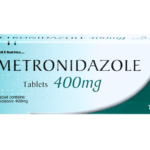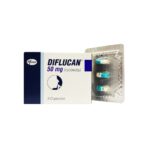How Long Does It Take For Metronidazole To Work?

Metronidazole is in a class of medications called nitroimidazole antimicrobials. It works by stopping the growth of bacteria. Metronidazole capsules and tablets are used to treat infections of the reproductive system, gastrointestinal (GI) tract, skin, heart, bone, joint, lung, blood, nervous system, and other areas of the body.
Metronidazole capsules and tablets are also used to treat sexually transmitted diseases (STDs). Metronidazole extended-release (long-acting) tablets are used to treat bacterial vaginosis (an infection caused by too much of certain types of harmful bacteria in the vagina) in women.
Metronidazole injection is used to treat certain skin, blood, bone, joint, gynecologic, and abdominal (stomach area) infections caused by bacteria. It is also used to treat endocarditis (infection of the heart lining and valves), meningitis (infection of the membranes that surround the brain and spinal cord), and certain respiratory infections, including pneumonia. Metronidazole injection is also to prevent infection when used before, during, and after colorectal surgery.
How quickly does metronidazole work?
Metronidazole takes effect within 1 to 2 hours after the administration of the drug. The effects of metronidazole may not be visibly noticed immediately, but you will notice gradual improvements in your condition after a few days.
How quickly you get better after antibiotic treatment varies. It also depends on the type of infection you’re treating.
Antibiotics like metronidazole should be taken for 7 to 14 days. In some cases, shorter treatments work just as well. Your doctor will decide the best length of treatment and correct antibiotic type for you.
Even though you might feel better after a few days of treatment, it’s best to finish the entire antibiotic regimen in order to fully resolve your infection. This can also help prevent antibiotic resistance. Don’t stop your metronidazole treatment early without first talking with your healthcare provider.
What side effects should I expect when using metronidazole?
Get emergency medical help if you have signs of an allergic reaction to metronidazole (hives, itching, warmth or tingling; fever, joint pain; dry mouth, dry vagina; stuffy nose, difficult breathing, swelling in your face or throat) or a severe skin reaction (fever, sore throat, burning eyes, skin pain, red or purple skin rash with blistering and peeling).
Call your doctor at once if you have:
- new or worsening symptoms of infection;
- painful or difficult urination;
- confusion;
- a light-headed feeling (like you might pass out); or
- blisters or ulcers in your mouth, red or swollen gums, trouble swallowing.
Stop taking the medicine and call your doctor right away if you have neurologic side effects (more likely to occur while taking metronidazole long term):
- numbness, tingling, or burning pain in your hands or feet;
- vision problems, pain behind your eyes, seeing flashes of light;
- muscle weakness, problems with speech or coordination;
- trouble speaking or understanding what is said to you;
- a seizure; or
- fever, neck stiffness, and increased sensitivity to light.
Metronidazole can cause life-threatening liver problems in people with Cockayne syndrome. If you have this condition, stop taking this medicine and contact your doctor if you have signs of liver failure–nausea, stomach pain (upper right side), dark urine, clay-colored stools, or jaundice (yellowing of the skin or eyes).
Side effects may be more likely in older adults.
Common metronidazole side effects may include:
- depression, trouble sleeping, feeling irritable;
- headache, dizziness, weakness;
- nausea, vomiting, loss of appetite, stomach pain;
- diarrhea, constipation;
- unpleasant metallic taste;
- rash, itching;
- vaginal itching or discharge, pain during sex;
- mouth sores; or
- swollen, red, or “hairy” tongue.
This is not a complete list of side effects and others may occur. Call your doctor for medical advice about side effects. You may report side effects to FDA at 1-800-FDA-1088.





